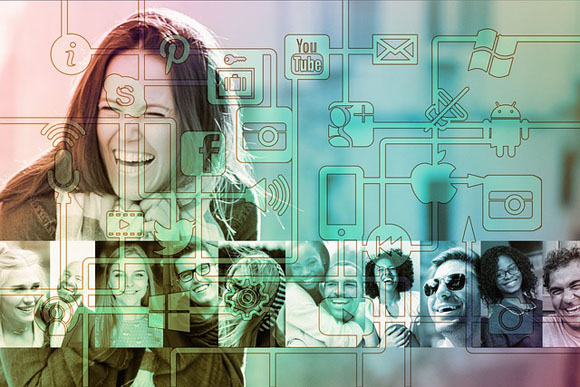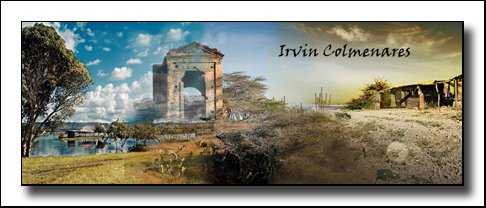
Saludos. En su más reciente publicación para la comunidad @holos-lotus, el amigo @emiliorios continúan ampliando perspectivas sobre el tema de las máscaras sociales. El contenido presentado es de mucho valor y seguramente que a ustedes, tal como me ocurrió a mí, les motivará algunas reflexiones. Les comento.
Una curiosidad que siempre me acompaña es saber si en otros tiempos las personas vivían situaciones similares a las nuestras en lo relacionado con temas como el psicológico.
Me pregunto, por ejemplo, si las personas de quinientos o seiscientos años atrás tenían que echar mano a lo que llamamos máscaras sociales, esto es, anteponer a su “personalidad real” comportamientos distintos por el solo hecho de no crearse problemas con los demás, o para encajar en un grupo social.
Es probable que hayan tenido que hacerlo o quizá no, pudiera ser que en otros tiempos las presiones sociales fuesen muchos menores que ahora, a fin de cuentas las personas tenían mucho chance de vivir bajo el anonimato y limitaban su vida a grupos pequeños, y eso quizá los liberaba de tener que andar aparentando lo que no eran.

En nuestro tiempo creo que es inevitable acudir a las máscaras sociales. Ser auténtico puede representar, en determinadas circunstancias, un costo demasiado alto.
En contextos de mediana o alta violencia un niño sensible y delicado tiene las de perder. Es probable entonces que desde sus primeros años sus padres comiencen a aleccionarlo en la necesidad de presentarse como un guapetón más, de otro modo las cosas le serían muy difíciles.
En los años de mi infancia era muy común que los padres prácticamente les exigieran a sus hijos que debía aprender a defenderse por sí mismos.
En el entorno donde me crié una de las máximas más repetidas era “no se deje embromar por nadie…”. La palabra exacta no era embromar sino otra mucho más potente, clara y precisa, pero por cuestiones de contexto no la voy a usar. Seguramente que si esto lo lee alguien de mi cultura sabrá cuál era la palabra utilizada.
Aparentar bravura, fortaleza y echonería, se convertía en una máscara de uso cotidiano. Y seguramente que hasta los más sensibles con el tiempo empezaran a sentir que su verdadera personalidad era la que le proporcionaba la máscara.

No sé si en los días que corren las cosas sean distintas. Es verdad que hay muchas campañas destinadas a estimular otras normas de convivencia donde se exalta más la concordia, la empatía y la solidaridad. Sin embargo, como señalé más arriba hay contextos de crianza más difíciles que otros.
Lo que si noto con bastante frecuencia son los comportamientos de evasión. Mis nietas, por ejemplo, tranquilamente pudieran pasar todo su tiempo dentro de las pantallas de sus celulares. Eso para ellas sería una situación muy deseable. Sus padres tienen que contrariarlas limitándoles el uso del cell. Lo que nunca toman de buena gana. Estar en esa realidad virtual parece mucho más agradable que enfrentarse a las vicisitudes del mundo analógico.
Pero este comportamiento de evasión no es exclusivo de los niños. También está presente en adultos de todas las edades. No deja de impresionarme la facilidad con la que las personas se sumergen en el entorno virtual, al punto de convertirlo en su única referencia para formarse opiniones sobre el mundo real.
Vivir la experiencia, poder ser testigo de primera mano, y ser protagonista de los acontecimientos, pareciera que ha perdido relevancia con el paso del tiempo.
En verdad que puede llegar a ser inevitable el andar por la vida cambiando de máscara según el momento en que estemos. Sin embargo, creo que esto al final puede resultar muy problemático.
Creo que si nos acostumbramos a aparentar todo el tiempo corremos el riesgo de perdernos, de no saber al final quienes somos realmente.
Y esa situación seguramente que podrá ser fuente de muchos conflictos, insatisfacciones y malestares existenciales de todo tipo, porque en ese proceso de aparentar podemos perder el propósito y sentido de la vida. Y llevar una existencia sin propósito puede traer como resultado una vida bastante miserable.
Lo difícil siempre será encontrar un equilibrio. No veo problemas con que en una circunstancia muy especial aparentemos lo que no somos para evitarnos males mayores. Pero una vez superado el percance o la situación comprometedora es importante volver al cauce, retomar lo que somos, y volver a la esencia de nuestra personalidad.
Gracias por tu tiempo.


Greetings. In his most recent publication for the @holos-lotus community, friend @emiliorios continues to broaden perspectives on the topic of social masks. The content presented is of great value and I am sure that you, as it happened to me, will be motivated by some reflections. Let me tell you.
A curiosity that always accompanies me is to know if in other times people lived situations similar to ours in relation to issues such as the psychological one.
I wonder, for example, if people five or six hundred years ago had to use what we call social masks, that is, to put their "real personality" in front of different behaviors just to avoid creating problems with others, or to fit into a social group.
It is probable that they had to do it or maybe not, it could be that in other times the social pressures were much less than now, after all people had much chance to live under anonymity and limited their life to small groups, and that perhaps freed them from having to go around pretending what they were not.
In our time, I think it is inevitable to resort to social masks. Being authentic can represent, in certain circumstances, too high a cost.
In contexts of medium or high violence, a sensitive and delicate child stands to lose. It is likely then that from his early years his parents begin to teach him the need to present himself as a pretty boy, otherwise things would be very difficult for him.
In my childhood years it was very common for parents to practically demand that their children learn to stand up for themselves.

In the environment where I grew up, one of the most repeated maxims was "don't be fooled by anyone...". The exact word was not "tease" but another much more powerful, clear and precise one, but for context reasons I am not going to use it. Surely, if someone of my culture reads this, they will know what the word used was.
Appear bravery, strength and boldness, became a mask of daily use. And surely even the most sensitive ones would eventually begin to feel that their true personality was what the mask provided.
I don't know if things are any different nowadays. It is true that there are many campaigns aimed at stimulating other norms of coexistence where concord, empathy and solidarity are more exalted. However, as I pointed out above, some parenting contexts are more difficult than others.
What I do notice quite often are avoidance behaviors. My granddaughters, for example, could easily spend all their time inside their cell phone screens. That would be a very desirable situation for them. Their parents have to counteract them by limiting their cell phone use. Which they never take willingly. Being in this virtual reality seems much more pleasant than facing the vicissitudes of the analog world.
But this avoidance behavior is not exclusive to children. It is also present in adults of all ages. I never cease to be impressed by the ease with which people immerse themselves in the virtual environment, to the point of making it their only reference for forming opinions about the real world.
Living the experience, being able to witness first-hand, and being a protagonist of events, seems to have lost relevance with the passing of time.

Indeed, it can become inevitable to go through life changing masks depending on the moment we are in. However, I think this can be very problematic in the end.
I think that if we get used to pretending all the time we run the risk of losing ourselves, of not knowing who we really are.
And this situation can certainly be the source of many conflicts, dissatisfactions and existential discomforts of all kinds, because in the process of pretending we can lose the purpose and meaning of life. And leading a purposeless existence can result in a rather miserable life.
The difficult thing will always be to find a balance. I don't see a problem with pretending in a very special circumstance what we are not in order to avoid greater evils. But once the mishap or compromising situation is over, it is important to get back on track, get back to who we are, and return to the essence of our personality.
Thank you for your time.
Translated with DeepL.com (free version).








Comunidad Be Entrepreneur
